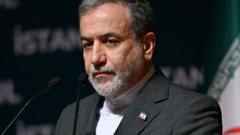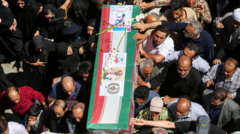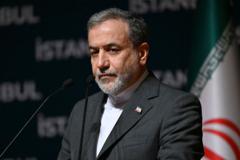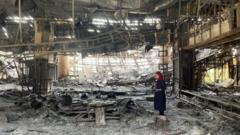In a surprising twist during intensifying geopolitical tensions, Iranian Foreign Minister Abbas Araghchi admitted to “excessive and serious” damage inflicted on nuclear sites by recent bombings conducted by the US and Israel. His comments, made during an interview with a state broadcaster, contrast sharply with earlier statements from Iran’s Supreme Leader Ayatollah Ali Khamenei, who dismissed claims that the strikes harmed the country's nuclear program. On the contrary, Khamenei labeled President Donald Trump's assertions of widespread destruction as exaggerated, insisting that the US actions fell short of delivering any significant impact.
**Significant Damage to Iran's Nuclear Facilities Acknowledged Amid Ongoing Tensions**

**Significant Damage to Iran's Nuclear Facilities Acknowledged Amid Ongoing Tensions**
Iran's foreign minister has confirmed substantial destruction to the nation's nuclear sites following recent US and Israeli bombings, raising questions about the future of its nuclear ambitions.
While Khamenei has remained in the shadows since the onset of hostilities with Israel on June 13, Araghchi's acknowledgment raises concerns about Iran’s nuclear capabilities. He indicated that an analysis of the damage is underway by the Atomic Energy Organization of Iran and firmly ruled out any plans to engage in renewed nuclear talks with the United States. This decision came in the wake of a halted sixth round of negotiations, coinciding with the escalation of military actions in the region.
Iran's parliament has also taken decisive steps, approving a bill that would cease cooperation with the International Atomic Energy Agency (IAEA), potentially barring inspectors from entering Iranian nuclear facilities. This development comes as the Trump administration has explored potential measures to bring Iran back to the negotiation table, including financial aid and eased sanctions aimed at establishing a civilian nuclear energy programme.
Despite America’s recent involvement in the conflict, with strikes targeting sites in Fordo, Natanz, and Isfahan, an initial Pentagon assessment purportedly minimized the extent of the damage, suggesting it merely delayed Iran's nuclear ambitions by months rather than years. Meanwhile, well over 600 casualties have been reported in the conflict, with a broader impact on Iran's population, revealing a country grappling with the consequences of war and uncertainty about its future in the international arena.
Iran's parliament has also taken decisive steps, approving a bill that would cease cooperation with the International Atomic Energy Agency (IAEA), potentially barring inspectors from entering Iranian nuclear facilities. This development comes as the Trump administration has explored potential measures to bring Iran back to the negotiation table, including financial aid and eased sanctions aimed at establishing a civilian nuclear energy programme.
Despite America’s recent involvement in the conflict, with strikes targeting sites in Fordo, Natanz, and Isfahan, an initial Pentagon assessment purportedly minimized the extent of the damage, suggesting it merely delayed Iran's nuclear ambitions by months rather than years. Meanwhile, well over 600 casualties have been reported in the conflict, with a broader impact on Iran's population, revealing a country grappling with the consequences of war and uncertainty about its future in the international arena.





















